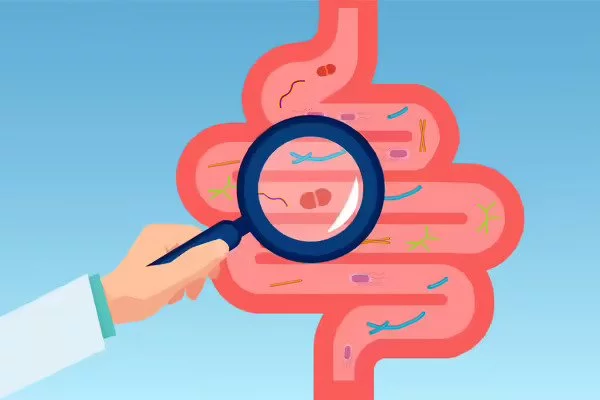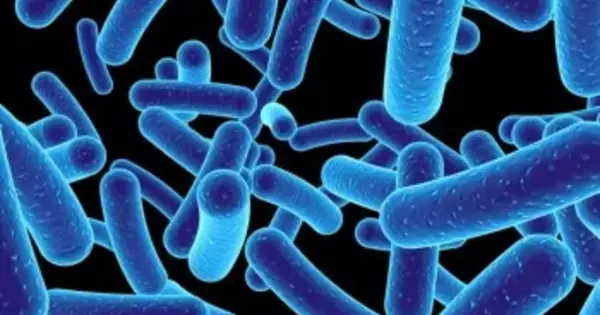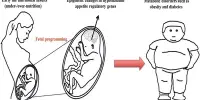According to new research from the University of Copenhagen, a subset of the Danish population has gut microbes that extract more energy from food than the microbes in the guts of their fellow Danes. The study is an important step toward understanding why some people gain more weight than others, even when they eat the same amount of food.
As unfair as it may seem, some of us seem to gain weight just by looking at a plate of Christmas cookies, while others can eat as much as they want and not gain a gram. A component of the explanation may be related to the composition of our gut microbes. This is according to new research from the Department of Nutrition, Exercise, and Sports at the University of Copenhagen.
Researchers examined the residual energy in the feces of 85 Danes to determine how effective their gut microbes are at extracting energy from food. At the same time, they mapped the composition of gut microbes for each participant.
According to the findings, approximately 40% of the participants belong to a group that, on average, extracts more energy from food than the other 60%. The researchers also discovered that those who extracted the most energy from food weighed 10% more on average, amounting to an extra nine kilograms.
It is very interesting that the group of people who have less energy left in their stool also weigh more on average. However, this study doesn’t provide proof that the two factors are directly related. We hope to explore this more in the future.
Henrik Roager
“We may have found a key to understanding why some people gain more weight than others, even when they don’t eat more or any differently. But this needs to be investigated further,” says Associate Professor Henrik Roager of the University of Copenhagen’s Department of Nutrition, Exercise, and Sports.
May increase the risk of obesity
The findings suggest that being overweight may be related to more than just how healthy one eats or how much exercise one gets. It could also be related to the composition of a person’s gut microbes. Based on the composition of their gut microbes, participants were divided into three groups. The so-called B-type composition (dominated by Bacteroides bacteria) was found in 40% of the participants and is more effective at extracting nutrients from food.
According to the findings of the study, some people may be at a disadvantage because their gut bacteria are overly efficient at extracting energy. Because of this efficiency, more calories may be available for the human host from the same amount of food.
“The fact that our gut bacteria are great at extracting energy from food is basically a good thing, as the bacteria’s metabolism of food provides extra energy in the form of, for example, short-chain fatty acids , which are molecules that our body can use as energy-supplying fuel. But if we consume more than we burn, the extra energy provided by the intestinal bacteria may increase the risk of obesity over time,” says Henrik Roager.

Short travel time in the gut surprises
The food we eat travels from the mouth to the esophagus, stomach, duodenum and small intestine, large intestine, and finally to the rectum, passing through several stations along the way before the body extracts all of the nutrients.
The length of this journey was also studied for each participant, who all had similar dietary patterns. The researchers hypothesized that those with the longest digestive travel times would get the most nutrition from their food. However, the study discovered the exact opposite.
“We thought that there would be a long digestive travel time would allow more energy to be extracted. But here, we see that participants with the B-type gut bacteria that extract the most energy, also have the fastest passage through the gastrointestinal system, which has given us something to think about,” says Henrik Roager.
Confirms previous study in mice
The new human study backs up previous mouse studies. Despite being fed the same diet, germ-free mice given gut microbes from obese donors gained more weight than mice given gut microbes from lean donors.
Even so, the researchers proposed that the differences in weight gain could be attributed to the fact that obese people’s gut bacteria were more efficient at extracting energy from food. This is the theory that has now been confirmed in a new study by the Department of Nutrition, Exercise, and Sports.
“It is very interesting that the group of people who have less energy left in their stool also weigh more on average. However, this study doesn’t provide proof that the two factors are directly related. We hope to explore this more in the future,” says Henrik Roager.
About gut bacteria:
- Everyone has a unique composition of gut bacteria – shaped by genetics, environment, lifestyle and diet.
- The collection of gut bacteria, called the gut microbiota, is like an entire galaxy in our gut, with a staggering 100 billion of them per gram of stool.
- Gut bacteria in the colon serve to break down food parts that our body’s digestive enzymes can’t, e.g., dietary fibre.
- Humans can be divided into three groups based on the presence and abundance of three main groups of bacteria that most of us have: B-type (Bacteroides), R-type (Ruminococcaceae) and P-type (Prevotella).
About the study
- The energy content of 85 overweight Danish women and men’s stool specimens was investigated.
- Participants ranged in age from 22 to 66 years old.
- 40% of participants belonged to a subgroup distinguished by a lower diversity of gut bacteria and a faster transit time for food through their digestive tracts.
- This group also had less residual energy in their stool than the other two groups, which could not be explained by differences in diet.
- The researchers also discovered that the group with the least amount of energy in their stool weighed more than the other groups.
















